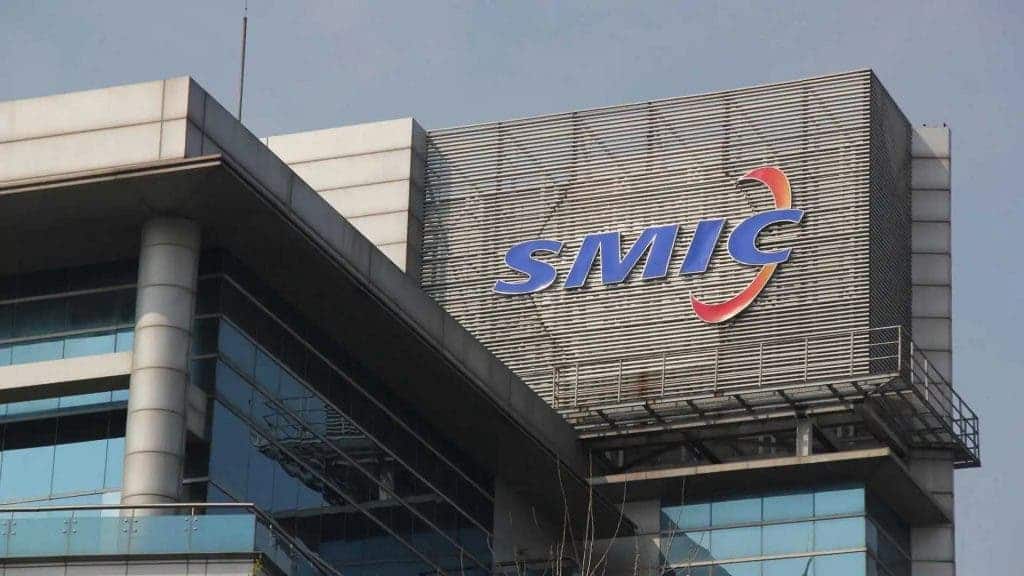Huawei has been struggling in the smartphone business recently. The company still has a solid domain over the Chinese market and even achieved good results in markets as Russia. However, the future is quite uncertain now that the brand lost access to its Kirin chipset division. Recently, the Ban prohibited TSMC from dealing with the brand. Without the semiconductor company chips, Huawei couldn’t keep its Kirin chipsets coming. Now, the brand needs to rely on third-party chipsets from other manufacturers. This advancement has exposed a critical situation in the Chinese smartphone business. So far, there isn’t a solid semiconductor industry in China that can make cutting-edge chips to compete. However, this is set to change in the coming years.
According to information, released by China’s Ministry of Industry and Information Technology (MIIT), 90 companies have filed a joint application for the establishment of the National Integrated Circuit Standardization Technical Committee. It has a proposed secretariat at the China Electronics Standardization Institute.
The 90 companies will work to strengthen the Chinese Semiconductor Industry
As aforementioned, China’s semiconductor Industry is one of the weak links in electronics manufacture. The recent ban on Huawei and ZTE from accessing US technology exposed the vulnerability of the local chip market. These companies had ways to bypass software and related restrictions. However, they couldn’t find a proper chip solution in their local market to keep the business flourishing. Even semiconductor companies like SMIC that were making effort to fill the void created by the ban were prevented from accessing US technology. Furthermore, most of the foundries are either small-scale or weak in technology so they need to cooperate in groups.

The purpose behind the creation of the committee is to coordinate weak industries and the promotion of integrated circuit standardization work. It also aims to strengthen the standardization team building. So far, 90 Chinese firms are part of the consortium. It includes Huawei, HiSilicon, Xiaomi, Datang Semiconductor, Unichip Microelectronics, Zhanrui Communication, ZTE Microelectronics, SMIC, Datang Mobile, China Mobile, China Unicom, ZTE, Tencent, and more.
The committee will need to focus research and formulation on the following topics:
- Improve the relevant standards for the assessment of integrated circuit products. It includes conducting research on the assessment requirements of integrated circuit bare chips and organizing the formulation of relevant standards.
- Track the development of emerging packaging technologies, focusing on the standardization of high-density FC-BGA packaging, wafer-level 3D rewiring packaging, through silicon via (TSV) packaging, SiP radiofrequency packaging, packaging, and ultra-thin chip 3D stacked packaging technologies, And solidify the results into the assessment procedures and requirements for flip-chip bonding, chip-scale packaging (CSP), wafer-level packaging (WLP), and system-in-package (SiP).
- Conduct research and standard formulation in response to the performance, reliability, and information security requirements of integrated circuit products in emerging applications. For example, for mobile Internet, cloud computing, Internet of Things, big data, etc., for key integrated circuits with a large amount of support and a wide range of applications, such as microprocessors, memories, field-programmable circuits, custom circuits, system-level circuits (SoC and Related IP cores), etc., carry out corresponding standard research and formulation work.
- Carry out parameter index system and quality assurance element research, formulate blank detailed specifications, to provide a basis for the preparation of detailed specifications for integrated circuit products, and ensure that product parameter indicators can fully meet the performance requirements, reliability requirements and information security of integrated circuits in the above application fields Guarantee requirements.
- Improve the standard system of testing methods, mechanical and environmental testing methods to ensure that the testing and testing of various parameter indicators have standards to be followed.






The future looks a little brighter. The semiconductor industry tech is to be highly competitive
Good. This will lead to the end of the monopoly of the US. 👍. Should have been done earlier
This is the beginning of the end for American-based technology business, and the end will be very obvious by 2023-2024, far earlier than any American politician expects.
The US Federal government has a huge military at it's disposal that has been used more and more recklessly in the 21st century. Iraq? No weapons of mass destruction. Two million dead Iraqi civilians.
The Federal government has also weaponized the US dollar, and in the past four years, it has weaponized US technology.
All this has been done to contain China. It's a repeat of the same policies used against Japan in the Reagan years. Now, they're backfiring.
China has been very happy to buy huge quantities of products that pay huge royalties to American tech companies in the past. They've been happy to share the wealth. They have provided high quality products for very low prices for American companies that have made enormous profits on the high quality products.
For example, the iPhone is assembled in China for around $23 and Apple takes ten times that on every iPhone they sell.
Now that the US has weaponized it's tech exports, the chinese government has no choice but to develop it's own high tech industry to replace every single technology from this belligerent, deceitful, and threatening erstwhile partner.
Accordingly, China is planning 3 nanometer chips, and new standards that will encourage cooperation between Chinese companies. Dog-eat-dog capitalism is being replaced with Confucian cooperation